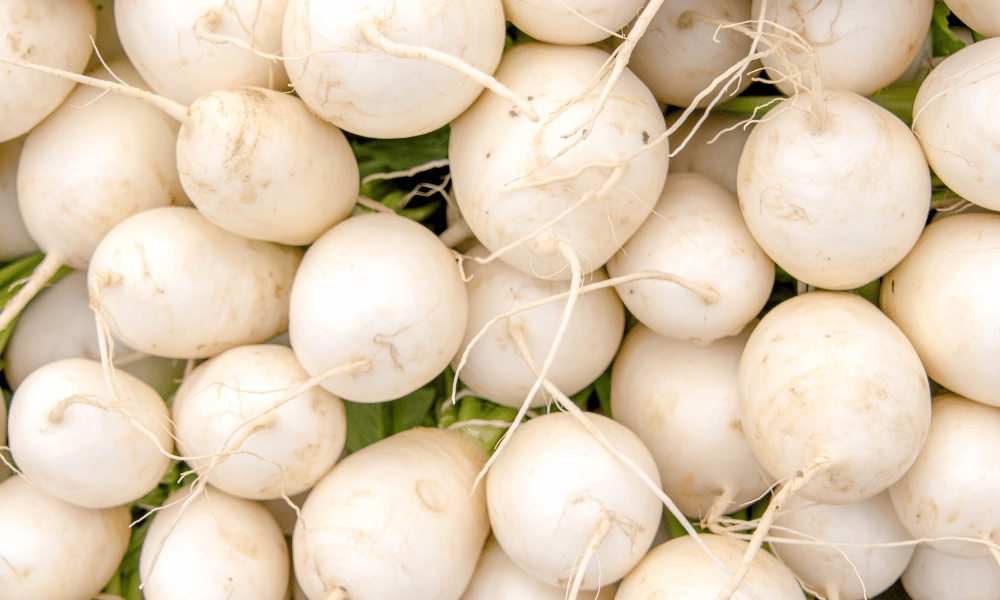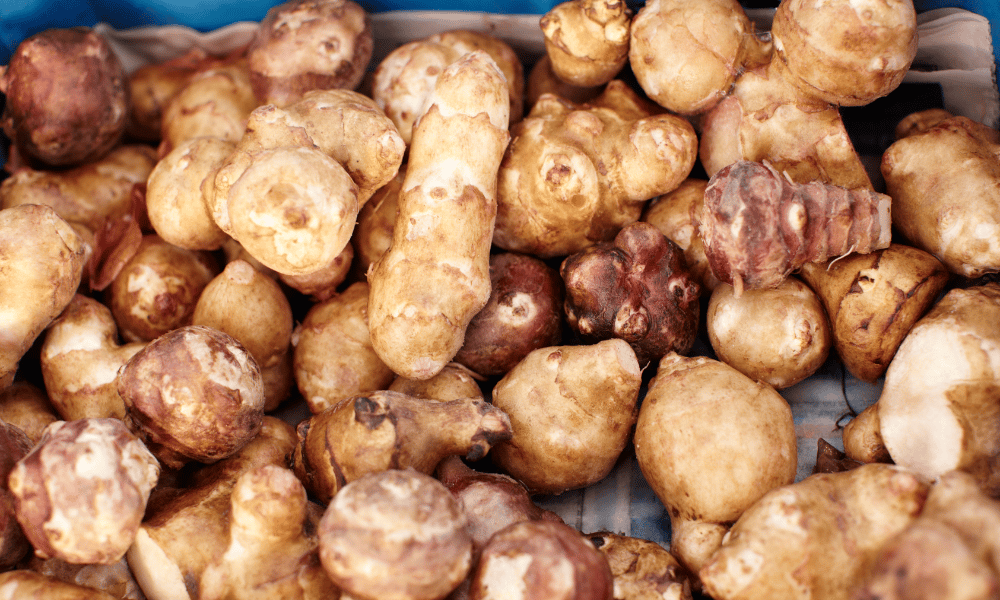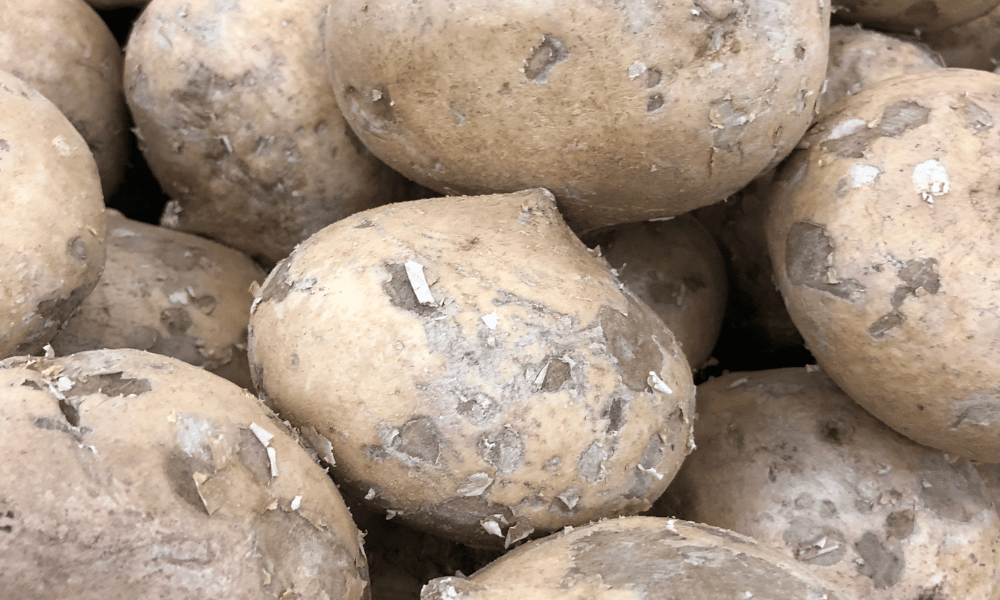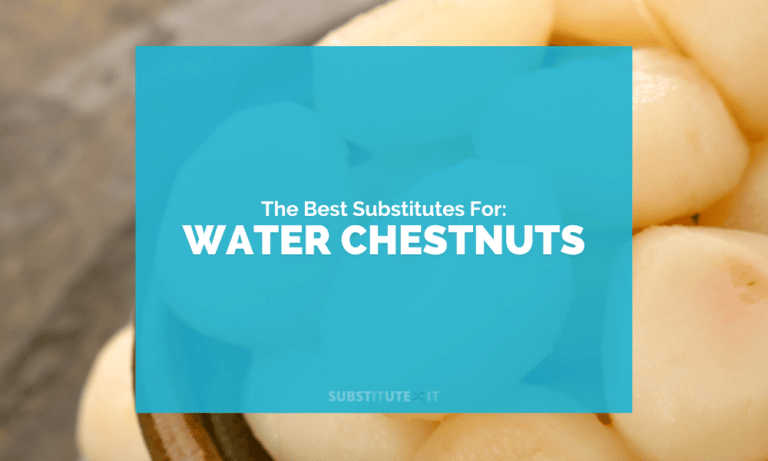From a look at water chestnuts, you can tell that they are vastly different from their names sake. In fact, water chestnuts are not nuts at all but rather aquatic vegetables.
This means that they grow underwater or in very wet conditions such as ponds or lakes. They do not tend to grow in the UK but are commonly found in Asia, Australia and Africa.
Sometimes supermarkets label water caltrop as water chestnuts even though they are very different. Though it is more likely that you be unable to find fresh water chestnuts at all in UK supermarkets.
Luckily, there are plenty of alternatives that are available in the UK.
Our 3 Substitutes for Water Chestnuts
Because of the extremely moist conditions that they grow in, water chestnuts develop a wet crispy texture that becomes even crunchier when cooked.
Fresh water chestnuts are full of nuttiness and have a tender sweetness that likens the flesh to that of fruit. However, canned water chestnuts have next to no flavour and are mostly used for their light, crisp texture.
Here are our 3 substitutes for water chestnuts:
1) White Turnips
Not only is white turnip one of the easiest to find substitutes on this list, but it is also the best replacement for water chestnuts in any recipe.
White turnip is a root vegetable that does not get as much moisture as water chestnuts during its growth. However, once they are cooked (or steamed, boiled or roasted), white turnips behave the same as water chestnuts.
Unlike other turnips, white turnip is not overbearingly sweet. They are the perfect balance of sweet but mild to work perfectly in the same dishes as water chestnuts.
Would Other Turnips Work?
Other turnip varieties do still possess a sweetness like white turnips but also have a destiny earthy taste. You can use other turnips as a water chestnut substitute but only in warmer and hearty dishes.

2) Jerusalem Artichokes
Also known as sunroot or sunchoke in other parts of the world, Jerusalem artichokes are not a root vegetable. However, their scratchy texture is very similar to root vegetables, which gives them the kind of crispness as water chestnuts.
Jerusalem artichokes are creamier in flavour than water chestnuts but have a rare nuttiness that is not common in tubers.
They also have a similarly balanced sweetness to that of water chestnuts, making them just as versatile.
Do You Need to Peel Them?
Unlike water chestnuts, you do not need to peel Jerusalem artichokes to eat them. You can, but they will turn extremely soft when cooked.

3) Jicama
As Mexican cuisine becomes more popular in the UK, so do jicamas, meaning they may be easier to find in your local supermarket than water chestnuts.
Jicamas have more starch than water chestnuts, but this works to make them even crispier when raw and cooked.
Though keep in mind that the longer jicama is cooked, the more tender and delicate it becomes.
Jicama has the same flavours as water chestnuts, but its sweetness is much more prevalent than its nutty undertones. Jicama will be a great substitute if you prefer the sweet taste of water chestnuts.
Can You Eat Jicama Raw?
Yes, jicama is delicious, both cooked and raw. When using it as a substitute for water chestnuts, stick with raw or undercooked jicama for a crispier texture.

Other Substitutes for Water Chestnuts
A large part of the water chestnut’s appeal in cooking is its texture. However, with most of the above substitutes, their texture is similar to water chestnuts, but their flavours are different.
If you are trying to use water chestnuts purely for the nutty, sweet flavour, there are a few nut flours you could use instead:
- Hazelnut Flour – A popular chocolate pairing, hazelnuts are naturally sweet, which is reflected in hazelnut flour. Though it is the extreme nutty flavour of the nut that makes hazelnut flour a good substitute.
- Almond Flour – Raw almonds have a noticeably bitter bite compared to other nuts. But when turned into flour, sweeter almonds are used, resulting in a flour that is not too bitter.
Summary
Due to their rarity in the UK, it is hard to find water chestnuts unless you are willing to settle for the flavourless canned version.
Various root vegetables grow in similar conditions to water chestnuts, giving them a similar texture. But it is the humble white turnip that comes closest in terms of texture and flavour.
